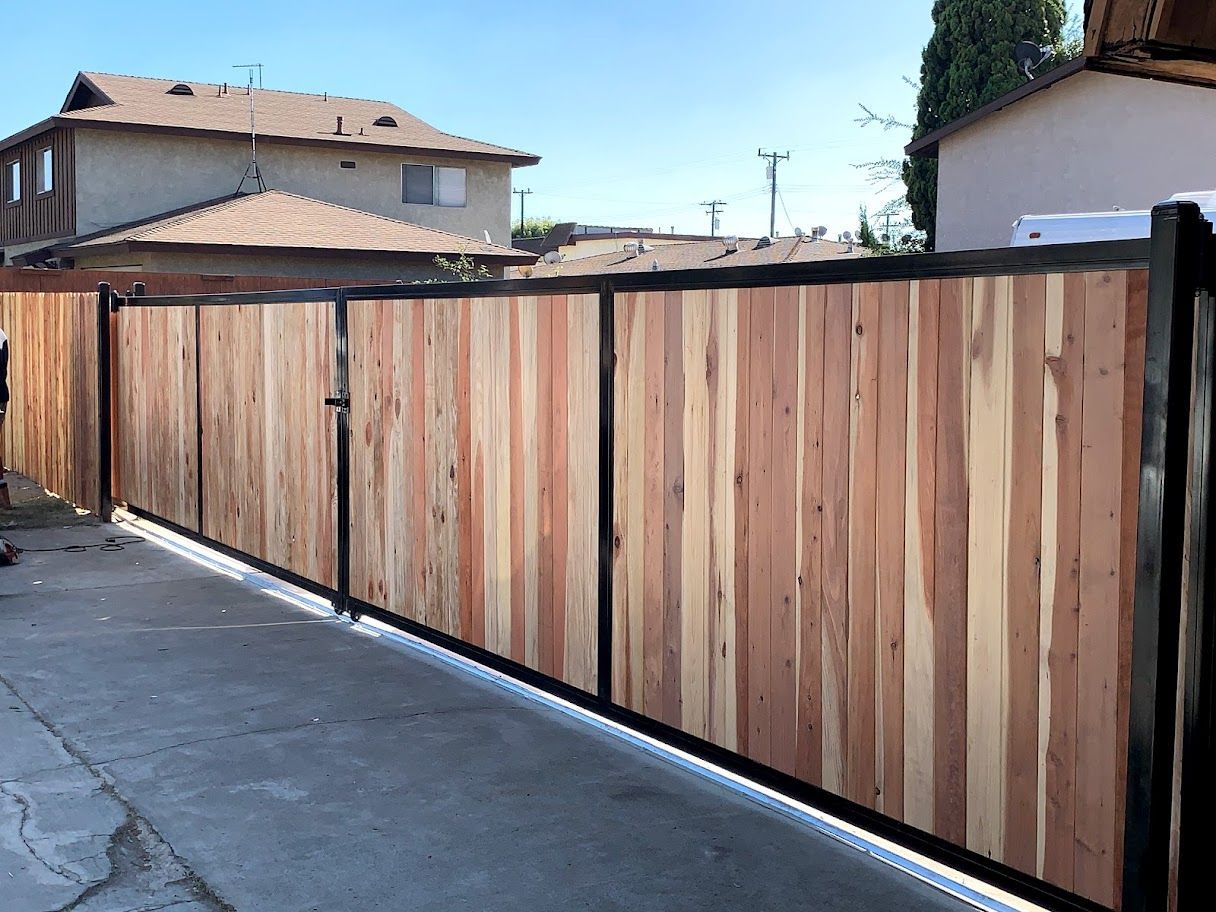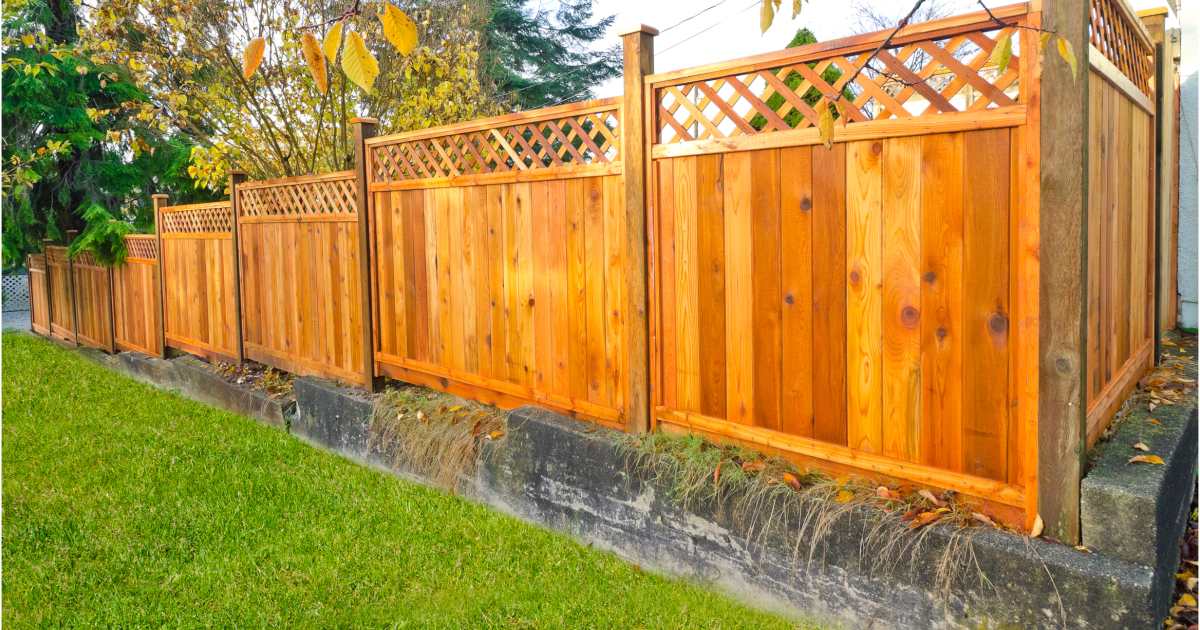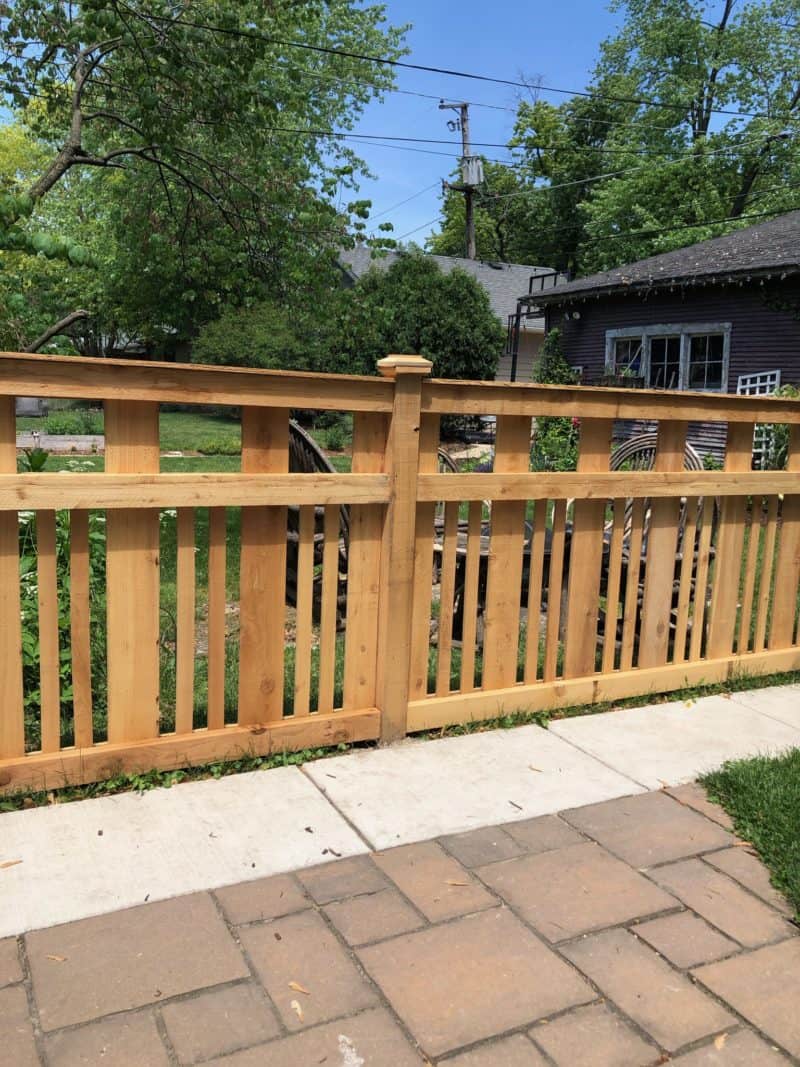All Categories
Featured
If you're considering installing a fence around your building, comprehending the permit requirements in your location is essential. In this guide, we'll break down the various authorizations you may need to install a fence and just how to ensure your task stays certified with neighborhood legislations.
Why Are Allows Required for Fence Installation? Permits are called for to guarantee that the fence you develop adheres to local building codes, zoning regulations, and safety and security requirements. They ensure that the fence will not block energies, website traffic flow, or develop dangers for pedestrians.
![]()
Kinds Of Permits You Might Requirement. Building Authorization. A structure authorization is one of the most common requirement for mounting a fence. This license guarantees that the framework you construct abide by regional safety and security codes and guidelines. If your fencing surpasses a specific elevation (usually around 6 feet), you may need to obtain a building permit. The neighborhood authorities will usually review your plans to guarantee that your fence is risk-free and structurally audio.
Zoning Authorization. A zoning authorization makes certain that your fencing complies with these policies. Your fence may require to be set back a specific range from pathways or building lines.
Homeowners Association (HOA) Approval. If your building is component of a home owners organization, you may require authorization prior to installing a fence. HOAs frequently have rigorous guidelines concerning the type, design, and products utilized for fencings to keep a consistent look throughout the community.
Specialized Permits. In some cases, you might require specialized permits based on the area of your residential property or the nature of your fence. For example, if your property is in a flooding area, you might require added licenses to ensure that your fencing does not obstruct drain or water circulation. If you intend to build a fence near an environmentally secured location, you might require an unique license to comply with ecological laws.
![]()
Utility Easements and Utility Company Authorizations. Before installing a fencing, you must inspect if your residential property has an easement. Building a fencing within an easement might conflict with utility upkeep or damages underground lines.
How to Figure Out Which Allows You Required. Consult Local Authorities. The initial action in establishing the licenses needed is to contact your neighborhood building department or zoning workplace. They can offer specific information concerning what licenses are required for your area. Several cities have on the internet sources or sites where you can examine the requirements or even make an application for a permit online.
Get In Touch With a Professional Fencing Contractor. A regional fence service provider is often accustomed to the permit procedure and neighborhood laws. They can aid you navigate the requirements and guarantee that your job is compliant. Many contractors likewise manage the authorization application process on your part, conserving you time and initiative.
Evaluation Your Neighborhood's HOA Guidelines. Make certain to examine their standards before using for any licenses if you live in a neighborhood controlled by an HOA. The HOA may need particular styles, products, or elevation limitations for fencings within the area. Submit your plans to them for approval prior to proceeding.
![]()
Repercussions of Not Obtaining a License. Setting up a fencing without the needed licenses can result in significant effects. You may encounter penalties, be gotten to get rid of the fencing, or be called for to renovate the installment to meet code needs. Furthermore, offering your home can be made complex if the fencing doesn't satisfy regional regulations. Potential customers might wait to buy a home with an unpermitted fencing, particularly if it's in offense of zoning legislations.
Final thought. Prior to setting up a fence on your residential property, make sure you comprehend the local laws and obtain any kind of needed authorizations. Structure authorizations, zoning permits, HOA authorizations, and specialty permits all play an important function in guaranteeing that your fence is risk-free, legal, and compliant.
Why Are Allows Required for Fence Installation? Permits are called for to guarantee that the fence you develop adheres to local building codes, zoning regulations, and safety and security requirements. They ensure that the fence will not block energies, website traffic flow, or develop dangers for pedestrians.

Kinds Of Permits You Might Requirement. Building Authorization. A structure authorization is one of the most common requirement for mounting a fence. This license guarantees that the framework you construct abide by regional safety and security codes and guidelines. If your fencing surpasses a specific elevation (usually around 6 feet), you may need to obtain a building permit. The neighborhood authorities will usually review your plans to guarantee that your fence is risk-free and structurally audio.
Zoning Authorization. A zoning authorization makes certain that your fencing complies with these policies. Your fence may require to be set back a specific range from pathways or building lines.
Homeowners Association (HOA) Approval. If your building is component of a home owners organization, you may require authorization prior to installing a fence. HOAs frequently have rigorous guidelines concerning the type, design, and products utilized for fencings to keep a consistent look throughout the community.
Specialized Permits. In some cases, you might require specialized permits based on the area of your residential property or the nature of your fence. For example, if your property is in a flooding area, you might require added licenses to ensure that your fencing does not obstruct drain or water circulation. If you intend to build a fence near an environmentally secured location, you might require an unique license to comply with ecological laws.

Utility Easements and Utility Company Authorizations. Before installing a fencing, you must inspect if your residential property has an easement. Building a fencing within an easement might conflict with utility upkeep or damages underground lines.
How to Figure Out Which Allows You Required. Consult Local Authorities. The initial action in establishing the licenses needed is to contact your neighborhood building department or zoning workplace. They can offer specific information concerning what licenses are required for your area. Several cities have on the internet sources or sites where you can examine the requirements or even make an application for a permit online.
Get In Touch With a Professional Fencing Contractor. A regional fence service provider is often accustomed to the permit procedure and neighborhood laws. They can aid you navigate the requirements and guarantee that your job is compliant. Many contractors likewise manage the authorization application process on your part, conserving you time and initiative.
Evaluation Your Neighborhood's HOA Guidelines. Make certain to examine their standards before using for any licenses if you live in a neighborhood controlled by an HOA. The HOA may need particular styles, products, or elevation limitations for fencings within the area. Submit your plans to them for approval prior to proceeding.

Repercussions of Not Obtaining a License. Setting up a fencing without the needed licenses can result in significant effects. You may encounter penalties, be gotten to get rid of the fencing, or be called for to renovate the installment to meet code needs. Furthermore, offering your home can be made complex if the fencing doesn't satisfy regional regulations. Potential customers might wait to buy a home with an unpermitted fencing, particularly if it's in offense of zoning legislations.
Final thought. Prior to setting up a fence on your residential property, make sure you comprehend the local laws and obtain any kind of needed authorizations. Structure authorizations, zoning permits, HOA authorizations, and specialty permits all play an important function in guaranteeing that your fence is risk-free, legal, and compliant.
Latest Posts
Discover Cut Costs on Car Maintenance with Montclare Auto Repair’s Special Deals
Published May 28, 25
1 min read
Learn How WyHy Federal Credit Union Saves You Money on Borrowing and Banking
Published May 23, 25
1 min read
Discover Cut Costs on Car Maintenance with Montclare Auto Repair’s Exclusive Deals
Published May 20, 25
1 min read
More
Latest Posts
Discover Cut Costs on Car Maintenance with Montclare Auto Repair’s Special Deals
Published May 28, 25
1 min read
Learn How WyHy Federal Credit Union Saves You Money on Borrowing and Banking
Published May 23, 25
1 min read
Discover Cut Costs on Car Maintenance with Montclare Auto Repair’s Exclusive Deals
Published May 20, 25
1 min read